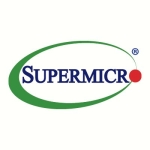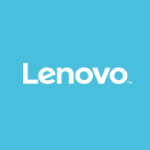What is our primary use case?
The primary use case would be our virtualization platforms, ranging from our presentation layers to just commodity workloads.
I don't know that we're too much focused on hybrid cloud just yet, since we're a service provider. A lot of our clients are paying us to host their workloads. It's not like we're running our own IT and putting it in the cloud, as well. However, as we do move things there, these workloads are probably the ones that are most opportune to move to the public cloud. So, it would generate a hybrid scenario, as these are Citrix presentation systems, and also Windows and Linux VMs, which can move back and forth.
How has it helped my organization?
It has improved our procurement and day zero provisioning. We are bringing in racks of Synergy which are not populated with the blades, then we are buying the blades and populating them, as our business needs. This has been pretty helpful to be able to sort of pre-package the data center with the Synergy platform, then deploy servers into it as we grow.
The solution has driven us to use the OneView platform and have more alignment with HPE's strategic directions. We are still learning what that means to us, but at least it has put us in better alignment with where HPE is at. When we do find something that doesn't work, they are incentivized to fix it better than if we weren't aligned with their vision.
Synergy has actually challenged us to rethink how our IT infrastructure teams are structured. So, we're still dealing with that. Our hope is that by having OneView, Synergy, and software-defined that we will realize the value statement over time.
So far, the solution has helped us implement our new business requirements quickly. Synergy has the ability to have everything pre-packaged and being able to slide blades in. That is what we have always liked about blade architectures: We can slide a blade in, or if we need to move it, we can go move it somewhere else. There is less cabling to deal with, etc. It is one of the attractive things of the platform that we first got excited about it.
What is most valuable?
We bought in pretty early to the composability story and being able to software-define the compute. We are realizing a fair amount of that.
What needs improvement?
It has been in the external integrations to other platforms that we have, which aren't HPE, where some of our challenges have been. We are still working on these.
I would like to see some integrations with non-HPE platforms. The Synergy platform is working pretty well in most cases. It does what it is advertised to do. Integrating it into our larger environment that is not HPE products has been somewhat of our challenge. I would challenge HPE to go fix and address these gaps. Have a story there, because not everybody will run HPE throughout their entire data center. I have other suppliers in there, and they have to work together.
What we are observing is to upgrade a whole rack of Synergy, so four frames when it's fully loaded, we are spending about 50 human hours doing that. There is a lot of work time and wait time in there. Overall, this work effort is spread across a bunch of people and the total time is about 50 hours. I don't know what percent increase that necessarily is, but it is a lot of work that we didn't do before. So, it feels like a big increase. That is still us rationalizing how the platform should be maintained.
I would like something that makes it even easier for developers to leverage OneView. It is all API driven. However, if you are using the web GUI that is OneView, you can't get any feedback about, "If I click this button, that button, or that button, before I hit go..." Show me what the API call is. Help me develop code faster if I am not a developer who wants to go read the whole API guide. Help me point, click, and start to develop code incrementally.
What do I think about the stability of the solution?
Stability-wise, it has been pretty good. When we are doing maintenance events. we have had some hiccups. We have definitely lost redundancy. There was one incident where we had everything go down. For the most part, what we are observing is the redundancy in the platform is working reasonably well. With the upgrades, we are just losing redundancy.
We're not expecting it to go down. Our expectation is we will run our workload 100 percent of time, even while we're upgrading the platform. In some instances, that's happened, and in the ones that it hasn't, it is definitely a bug that the HPE team is trying to address.
What do I think about the scalability of the solution?
We haven't hit the scale edge of it yet. However, we like what the solution says it will do. There have been some instances where we have overrun some of the software scaling, even without being at a massive hardware scale yet in the network space inside of Synergy. They are working on this, and it is something that we hope will continue.
How are customer service and technical support?
We often find ourselves having to get into the Tier 2 and 3 support or into the development teams. Based on our scale, and what we do with this platform and others, we tend to find more bugs that are edge cases for most other people. Therefore, Tier 1 support is of little interest to us. However, when we have gotten to the right people, the technical support has been really good.
Which solution did I use previously and why did I switch?
They stopped selling the old solution. We were using the c7000 blade infrastructure from HPE.
There were other things that we could have tried to do to wire up our environment differently. Having more simplistic cabling, being able to pre-stage frames, and slide servers is the experience that we desire to have. However, if it doesn't work with the other suppliers in my data center, then the experience quickly stops mattering.
How was the initial setup?
Our environment is very complex. That had a fair amount of bearing on deploying this platform. The OneView tool promises to make things simpler. Sometimes, it overlooks some of the really edge cases of the configuration to make things simpler, and that's what we found. There would be another tool to go to behind the scenes to go do what we need to do or troubleshoot. So, we have challenged the HPE team: "OneView should be the one thing to go to. There should not be something else behind it, telling me to go login here, but rejecting me because I don't have that username and password, then making me call support to login." We don't like that.
What about the implementation team?
We worked directly with HPE. Our experience with them was good. They came to the table and really worked with us. We generated a lot of bug tickets and issues, so we had a lot of really challenging conversations. However, the fact that they were there to have those conversations is why we wanted them.
HPE has brought people to bear for the project that would likely have come out of a Pointnext engagement in other cases. However, we haven't directly done something with Pointnext services.
What was our ROI?
We have definitely seen performance increases in the platform. A lot of that was related to just the componentry that is in it. We have sort of bought into the vision of where the platform is going to go and are hoping to see additional performance gains there.
Synergy feels a little heavy still on the day to upgrade operations, etc. However, we have gained some efficiencies on the provisioning front-end side.
What's my experience with pricing, setup cost, and licensing?
The platform that we run Synergy on is all virtualized. Our primary cost is likely VMware.
Which other solutions did I evaluate?
it was pretty much the top three: HPE, Dell EMC, and Cisco, when we started looking at new compute.
We decided to maintain our partnership with HPE because it's been around a long time. We know each other really well. We do a lot of business which is not server-related. They came to the table with their pricing models, investment strategies, and the partnership that they wanted to do to make their products fit better for us, which is why we chose to stick with them.
What other advice do I have?
If you are deploying solutions that are well aligned with what HPE has designed this platform to do, then you will probably have pretty good success. If you are sort of weird, like us, and the things you do come off as strange, or whatever, there will be some things you will have to pay close attention to and watch out for. Therefore, you should really be partnering with HPE. You should be asking to talk to their development teams and getting feedback, such as, "Here's what we're seeing and here's how we're using it." Sometimes, as we've heard from the development teams, we've used features that they've created in ways they didn't imagine. We had some results that we didn't expect nor did they. So, that's what we're working on. If you think you will be in a similar situation, open that communication channel early and express that need to your account team.
Deployment time has decreased, for sure. What we have detected is we think the care and feeding maintenance over time might be a little higher than what we had expected. However, that is part of:
- How are we going to structure the team?
- How are we going to plan the work?
- How will the solution set get better?
I don't think our development team really knows of the solution or has any interactivity with it. Therefore, it hasn't necessarily enhanced nor has it detracted from a developer standpoint either.
In our environment, with what we are trying to achieve, it still has a ways to go.
The biggest lesson learned is that if you really buy into software-defined and start moving to infrastructure as code, there is a lot of power potential there, if you can just stay the course.
Disclosure: My company does not have a business relationship with this vendor other than being a customer.









